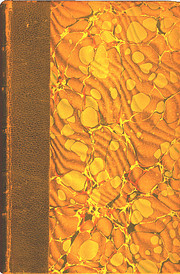

Click on a thumbnail to go to Google Books.
|
Loading... Dvärgen (original 1944; edition 2005)by Pär Lagerkvist
Work InformationThe Dwarf by Pär Lagerkvist (1944)

No current Talk conversations about this book.   ) )This might be one of my favorite books. It's difficult to find a narrator so despicable, and yet in the end the dwarf's warped view of the world ends up clarifying the world for the reader. Through the bloodthirsty war, the siege, and the plague that ravishes the land, the dwarf's misanthropic attitudes makes you wonder at the hatred in men's hearts. There are only a small handful of books that I consider masterpieces. "The Dwarf" by Pars Lagerkvist is one of them. The book, written in the format of a diary, is short, easy to read, and complete. Even several weeks after finishing it, I keep thinking about the title character. It is set in the Italian Renaissance, a period of great artistic progress, but also a period of war and court intrigue. The title character is a member of a large, influential palace in a city-state. Although he has some interactions with some of the main characters, he is largely an observer, telling stories through his own, fascinating point of view. He is an angry man who believes that he is of a different "race" than the rest of humanity. That belief - his apartness - festers in him. He finds so much about humanity to be detestable: the way people eat, the way they create art, the way they make love, and the way they worship. Given how he was probably brought up and how he is treated in the court, it is understandable that he would believe as such. Plot developments in the book are vehicles to show his personality and his antipathy for people. Readers can game out that some of the characters are actual historic figures in actual historic places. After reading it, I looked up some of the history of Milan during the city-state period, but what I learned added little value to my understanding of this brilliant book. That suggests a certain timeless quality. Today, an interpretation of the book should point out that by rendering a minority (in this case, a person of short stature) in such an angry, violent, and antipathetic way is one-dimensional. As I continue to think about the title character though, I understand why Lagerkvist gives him these qualities. Many early reviewers claim that "The Dwarf" is Lagerkvist's attempt to create a fully evil character. This might be true, but there were many instances where the character could commit evil acts, but choses not to through inaction. There are also suggestions by reviewers that the character might actually be the Machiavellian prince. I prefer to think that the character has simple antipathy for the world around him. Alexandra Dick, the English translator, seems to have done a wonderful job. The language is even and unambiguous, which I assume was Lagerkvist's intention. It is a brilliant book. I really liked this one! Historical fiction, set in Renaissance-era Italy, with squabbling city-states and courtly intrigues as the backdrop. The narrator, a dwarf kept as a curiosity by a local lord, has rejected all connections to humanity, and views everything and everyone else with barely-concealed hatred and disgust. Absolutely no-one he’s ever met has treated him in any other way than as a despicable non-human, and so he keeps himself aloof, separate from the accursed human race. The narrator is unapologetically and just so delightfully evil. Early on in the book, to establish his character, Lagerkvist has him kill a kitten, just to hurt the child whose pet it is. As the novel progresses, and his lord’s ambitions soar, he delights in wreaking underhanded havoc, revels vicariously in crude bloodshed, and spews his indiscriminate revulsion at any and all. It’s one of those books where the main character would be an awesome villain in someone else’s story, and where the story is one of no reviews | add a review
AwardsNotable Lists
"I have noticed that sometimes I frighten people; what they really fear is themselves. They think it is I who scare them, but it is the dwarf within them, the ape-faced manlike being who sticks up his head from the depths of their souls." Pär Lagerkvist's richly philosophical novelThe Dwarf is an exploration of individual and social identity. The novel, set in a time when Italian towns feuded over the outcome of the last feud, centers on a social outcast, the court dwarf PIccoline. From his special vantage point Piccoline comments on the court's prurience and on political intrigue as the town is gripped by a siege. Gradually, Piccoline is drawn deeper and deeper into the conflict, and he inspires fear and hate around him as he grows to represent the fascination of the masses with violence. No library descriptions found.
|
Current DiscussionsNonePopular covers
 Google Books — Loading... Google Books — Loading...GenresMelvil Decimal System (DDC)839.7372Literature German & related literatures Other Germanic literatures Swedish literature Swedish fiction 1900-1999 1900-1945LC ClassificationRatingAverage: (4) (4)
Is this you?Become a LibraryThing Author. |
||||||||||||||||||||||||||||||||||||||||||||||||||||||||||||||||||||||||||||||||||||||||||||||||||||||||||||||||||||||||||||||||||||||||||||||||